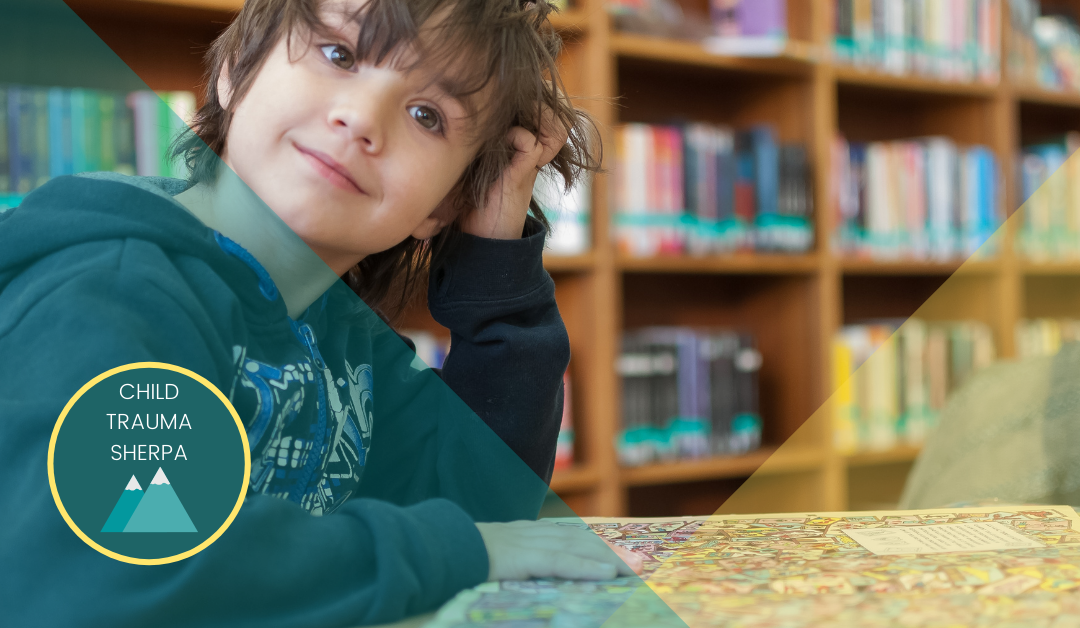Understanding the long-term effects of adverse childhood experiences (ACE) is important. As the parent of a child with trauma, understanding these long-term symptoms helps to keep your perspective on why it is so important to promote the healing process during childhood.
Childhood Trauma: The Body’s Response and Risk Factors
Understanding Adverse Childhood Experiences
Adverse childhood experiences (ACE) are traumatic events in a child’s life. These can range from surviving a natural disaster to witnessing violence to experiencing abuse. It is important to remember that children view the world differently than adults, so something that may not seem like a traumatic event to you can be to them and can leave a lasting mark.
The Body’s Response to Trauma
Childhood trauma affects the body in many ways; however, the root cause is an injury to the brain. When the body is constantly in the fight or flight response due to loss of trust and feelings of safety from the adults in their life, it increases the levels of a protein that has been found to cause inflammation in the brain. It also increases the levels of the stress hormone, which in turn causes inflammation in the entire body. Beyond that, there is also emotional damage in the form of anxiety and depression.
Risk Factors for Long-Term Symptoms
There are a few risk factors that can increase the chance of problems later on in childhood and into adulthood. One of these is age. While trauma can leave a mark at any age, children who experience an ACE before the age of eight may be particularly vulnerable.
Another risk factor is the level of trauma. Remember that each child is different and not all children will have the same level of trauma from experiencing the same adverse life event. However, it can also be said that the more extreme the trauma, the higher the risk for a lasting effect.
And finally, the duration of the trauma can also increase the risk factor for long-term effects. Chronic or repeated exposure to trauma, such as repeated violence or abuse, can come with more long-term symptoms than a one-time traumatic event, such as a natural disaster.
Now that we have taken a look at what childhood trauma is, how the body responds to trauma and some of the risk factors that increase the likelihood of long-term effects, let’s take a look at how childhood trauma manifests itself as chronic or long-term symptoms in adults.
Long-Term Symptoms in Adults
The symptoms of childhood trauma in adults can show up in two different forms: behavioral and physical health effects.
Behavioral Health Effects
People who have experienced traumatic events as a child and did not heal from those events are more likely to experience:
- Anger and aggression
- Anxiety
- Problems sleeping
- Depression or feelings of isolation
- Fear
- Difficulty trusting others
- Difficulty connecting with others and forming attachments or relationships
- Poor self-esteem
- Destructive or risky behavior such as drug use or eating disorders that are used as a coping mechanism
- Other mental health disorders
Many of these symptoms are also present during childhood and you may be dealing with some of these issues with your adopted child with trauma already. But without healing during childhood, these symptoms can persist, even getting worse or leading to other health problems.
Physical Health Effects
Because the body is constantly in a state of fight or flight response, and because of the consequences of risky behavior, childhood trauma can affect a person’s physical health. Experiencing one or more ACEs can increase an individual’s risk for:
- Asthma
- Heart disease
- Lung disease
- Liver disease
- Obesity
- Diabetes
- Autoimmune disorders
- Strokes
There is Hope in Healing
Overall, the more trauma you have experienced, the worse your health is as an adult. However, there is hope! While childhood trauma is an actual brain injury, the brain does continue to grow and repair itself up through the age of 25, giving parents the opportunity to help their child heal over time.
Want more helpful tips to promote healing? Download my 3 Keys for Parenting Adopted Kids with Trauma guidebook.


